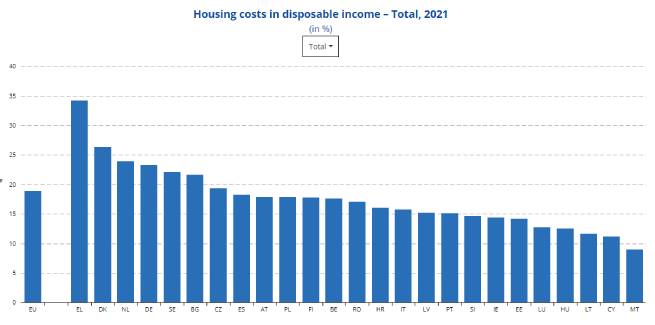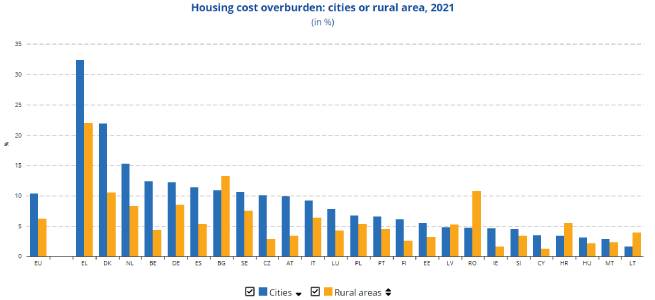According to the latest data from Eurostat, Greece takes the lead in the excessive burden of housing costs for households in relation to their income.
The housing overburden rate is defined as the percentage of the population living in households that spend more than 40% of their disposable income on housing.
Social housing: what is used in Northern Europe and what is in Greece
In 2021, this figure was 10.4% of the population EU in cities, while for rural areas – 6.2%. The highest rates, well above the European average, were in Greece, where 32.4% of households in urban areas had to pay more than 40% of their income towards housing costs, in Denmark (21.9%) and in the Netherlands. 15.3%.
On the contrary, the cities of Lithuania, Malta and Hungary recorded the lowest rates (1.6%, 2.9% and 3.1% respectively).
Rural areas
In terms of rural areas, Greece holds negative leadership. Compared to an average of 6.2% of the population overburdened by housing costs, the corresponding percentage for rural areas has risen to 22.0% in 2021. They are followed by Bulgaria (13.3%) and Romania (10.8%).
The lowest congestion rates in rural areas were recorded in Cyprus (1.3%), Ireland (1.6%) and Hungary (2.2%). In 2021, housing cost congestion was higher in urban areas than in rural areas in all EU countries except Bulgaria, Romania, Croatia, Lithuania and Latvia.
What percentage of income “eats” housing
In terms of housing affordability, relative to total disposable income, on average across the EU in 2021, 18.9% of disposable income was devoted to housing. Percentages varied between member states, with the highest percentages again being in Greece (34.2%), Denmark (26.3%) and the Netherlands (23.9%).








More Stories
"Tax" for fire protection of real estate
The first non-state medical school in Greece
Real estate: Greeks choose country houses